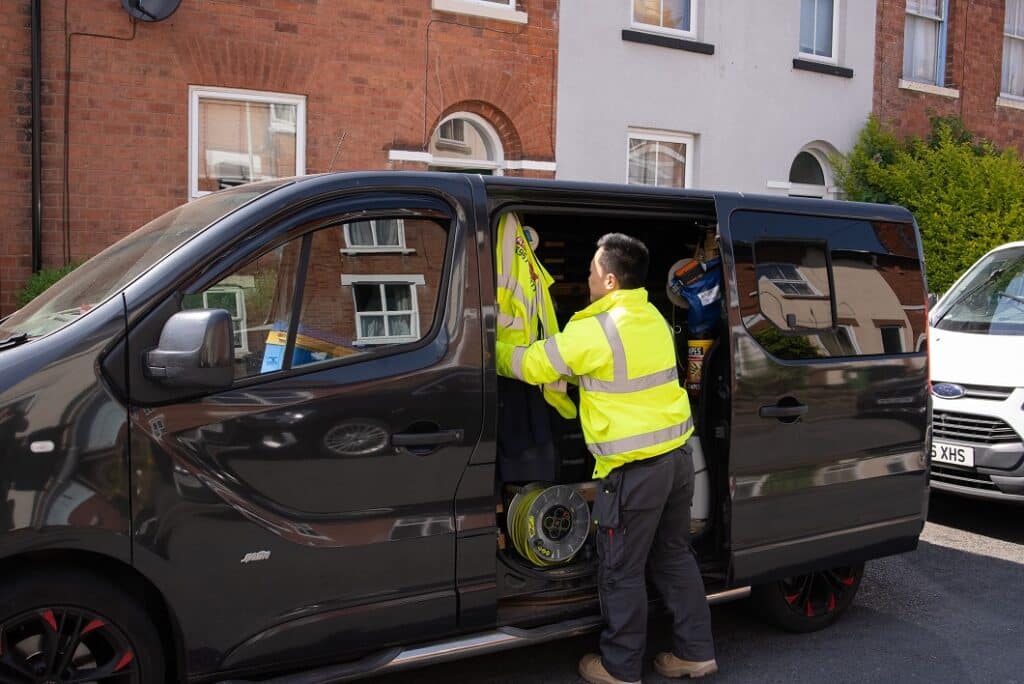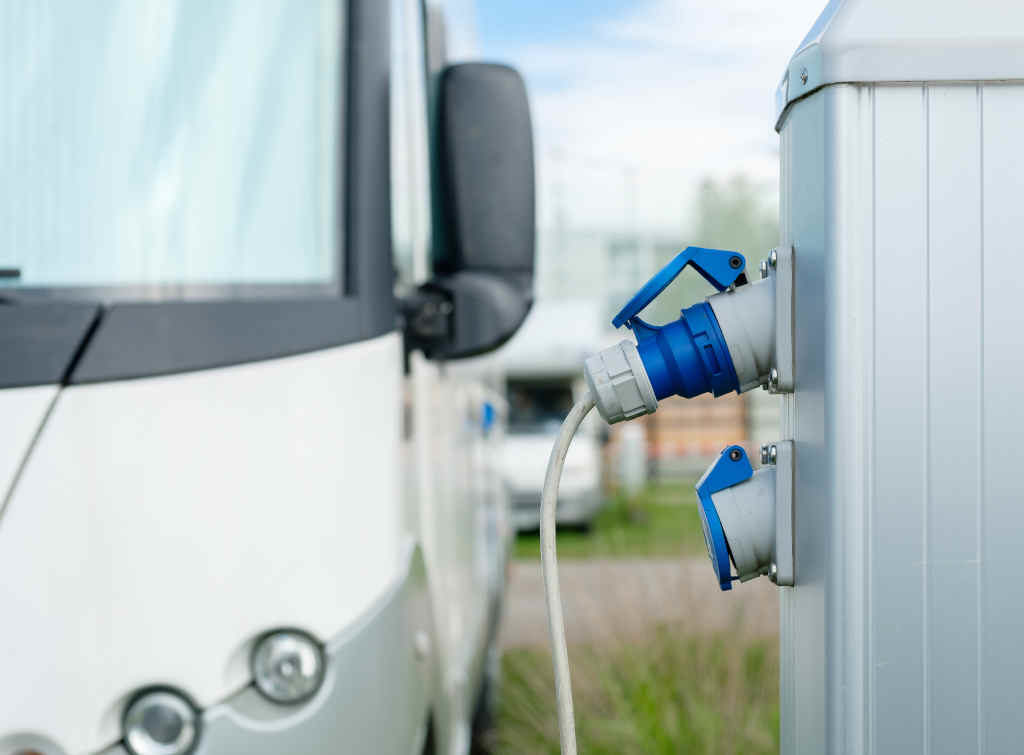Understanding company van tax

In this article, we'll cover:
Company van tax explained
Rather than being more complicated, company van tax is actually much more straightforward than car tax rates. There is one tax band for all vans, pick-up trucks, and other light commercial vehicles (LCVs).
If you buy a van for business then there are some tax rules to be aware of. They include:
- Benefit in kind tax (BIK) and how to calculate the amount owed
- The classification of a ‘van’ by HMRC
- Company van tax exemptions
- Private use and ‘insignificant private use’
- Zero-emission van tax
Do you pay tax on a company van?
You are required to pay tax on a company van that is owned or leased by an employer and is used by an employee for personal travel. This is a ‘perk of the job’, and is known as benefit in kind (BIK) tax.
However, if the van is solely used for work purposes, company van tax will not need to be paid.

What is a van for HMRC tax purposes?
When is a ‘van’, a ‘van’? Let’s find out from the experts. Here’s what HMRC says:
“A vehicle constructed primarily for the conveyance of goods or burden, whose design weight does not exceed 3,500kg.”
- Double cab pick-up trucks
For example, with a four-seat, four-door arrangement. These must have a gross vehicle weight of one tonne or more to be accepted as a van for BIK tax purposes.
- 4x4s and multi-purpose vehicles
These are normally classified as cars, however, there are some commercial variants that could be eligible for company van tax exemption if they meet certain criteria.
- Work buses and minibuses
These transport people rather than goods. Therefore, they are not classed as ‘vans’ and are not eligible for company van tax exemption.
To be sure, check out HMRC’s classification of car-derived vans and combi vans, and refer to the van’s V5C registration document for its European classification:
- N1 or N2 is classified as a van
- M1 or M2 is classified as a car
Looking for great deals on a company van?
Save money on your new van with our exclusive member discounts
Join Checkatrade nowCompany van tax as benefit in kind
In a nutshell, company van is a type of benefit in kind (BIK). It is the tax you will need to pay to HMRC if you use your company van for regular private use.
A company van can be kept at home, and employees can use the van to commute to and from work, and for work purposes, but much more than that is classed as private use, and is taxable.
‘Private use‘ is considered as journeys that are not connected to your work duties, for example:
- Using the company van in the evenings and during the weekend
- Making journeys such as the school run
If your employees use the company van for private use, you are legally obliged to tell HMRC. Many vans are fitted with tracking software, but it’s recommended your employees keep a record of their mileage for business and personal use too.
Company van tax for insignificant private use?
If your employees use the company van to grab a coffee and a newspaper on the way to work, this is deemed as ‘insignificant private use‘, and is not taxable.
Likewise, using the company van for the occasional trip to the doctor during the workday would be deemed as ‘insignificant private use’.
Company van tax calculator
So, where it is payable, and how much is company van tax?
The flat-rate BIK rate for company vans rose from £3,600 in the 2022/23 tax year to £3,960 for the 2023/24 tax year.
However, you don’t pay this amount in full each year. To calculate your company van tax, you need to refer to your personal income tax band.
For the 2023/24 tax year, this is calculated as follows:
- If your personal income tax rate is 20%, you’ll pay 20% of the BIK rate. For example, £3,960 x 20% = £792 per year
- If you sit within the 40% personal income tax rate, you’ll pay 40% of the BIK rate. This works out at £3,960 x 20% = £1,584 per year

How to reduce the BIK rate you pay
Here are some instances where you might be able to reduce the amount of BIK you have to pay:
- If an employee can’t use the van for 30 consecutive days
- If an employee pays you to use the van privately
- If more than one employee uses the van (you can split the BIK rate between the employees who use the van)
- If the van is a zero-emissions vehicle
Looking for great deals on a company van?
Save money on your new van with our exclusive member discounts
Join Checkatrade nowHow to calculate company van fuel tax
If you pay for the fuel used in your employee work vans, this comes under the banner of a ‘benefit’ or ‘perk’ and is therefore taxable.
It’s worth remembering that Checkatrade members can save money on van fuel.
To calculate company van fuel tax, multiply your income tax rate by the fuel tax rate. The fuel tax rate rose from £688 for the 2022/23 tax year to £757 for the 2023/24 tax year.
- If your personal income tax rate is 20%, you’ll pay 20% of the fuel tax rate. For example, £757 x 20% = £151.40 per year
- For those within the 40% personal income tax rate, you’ll pay £757 x 40% = £302.80 per year
You can reduce the amount of company van fuel tax you pay if:
- Your employee cannot use the van for 30 days in a row
- Your employee pays you back for all their private fuel
- You stopped providing fuel during the tax year

Is there an electric company van tax?
There are no tax benefits for plug-in hybrid vans, but zero-emission vans do come with greater tax incentives.
The BIK rate for all-electric company vans was reduced to zero in 2020. When reporting this on your P11D, it’s 0% of £3,960 = £0 (for the 2023/24 tax year).
If you’re thinking of buying or leasing an electric van for your business, then we can help. Checkatrade members get discounts on electric vans.
What is the tax allowance for a company van?
There are tax allowances for company vans.
For example, if you run a limited company and you lease a company van, you can claim the lease costs back against your profits, reducing the amount of corporation tax you pay.
The cost of purchasing a van can also be claimed as a business expense against your tax bill.
Checkatrade members get exclusive discounts on vans.
Looking for great deals on a company van?
Save money on your new van with our exclusive member discounts
Join Checkatrade nowFAQs
How much is company van tax?
Company van tax is called a benefit in kind tax. The amount you pay will depend on factors like how much driving is for personal use and your personal income tax rate.
Is company van tax changing?
Company van tax is amended regularly by HMRC. You should check what the company van tax rates are for each tax year, for example, the benefit in kind rate for the 2023/24 tax year is £3,960.
Does a van count as a company car?
HMRC classifies vans and cars differently for tax and National Insurance. So, it’s important to make the distinction between work vans and company cars in your business.
Can an employee use a company vehicle for personal use?
An employee can use a company vehicle for personal use, but this use is taxable under benefit in kind taxation unless it’s classed as ‘insignificant private use’.
Ready to take your business to the next level?
We can help you get there
Content disclaimer: This content has been created for general information purposes and should not be taken as formal advice. Read our full disclaimer here.




No comments yet!